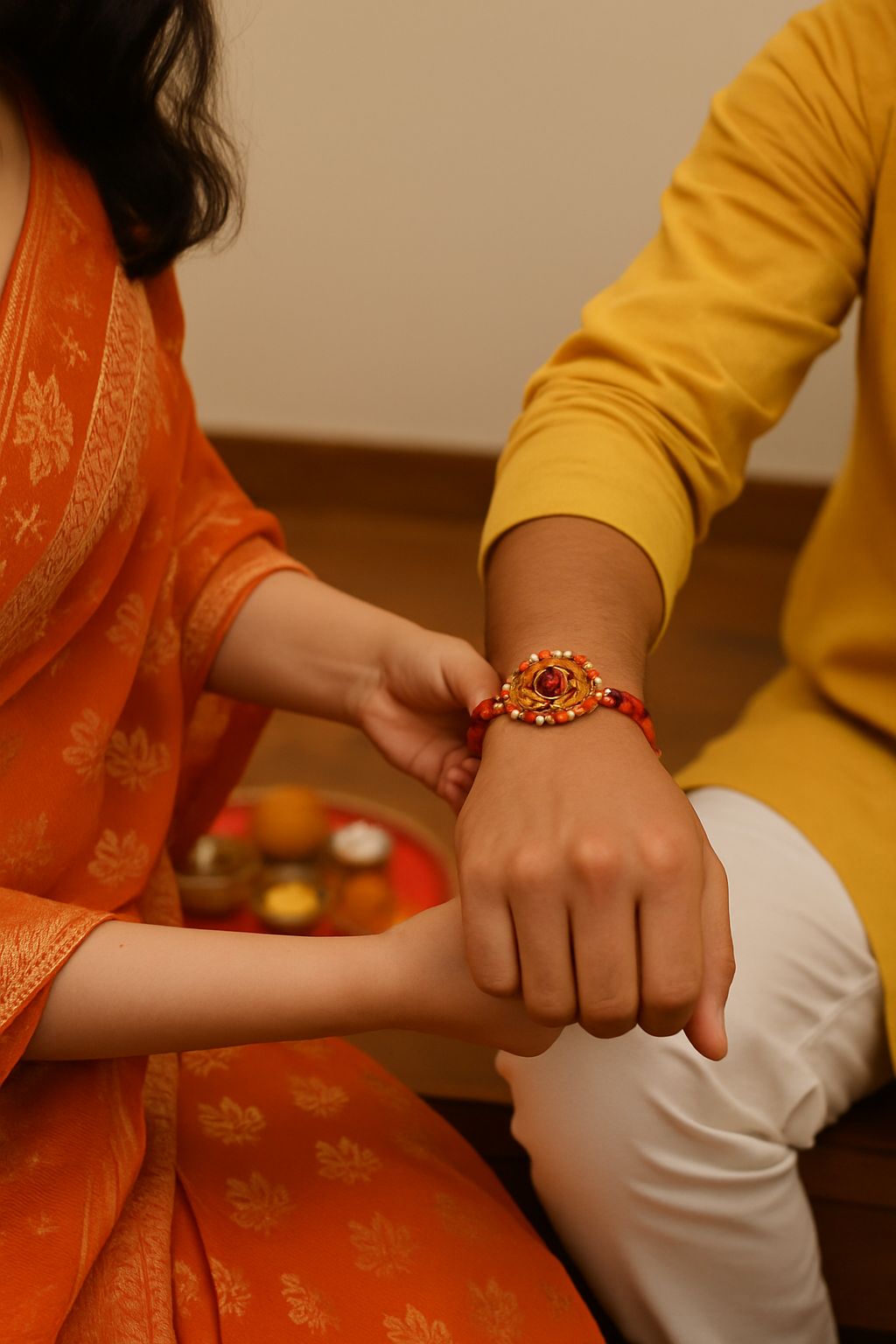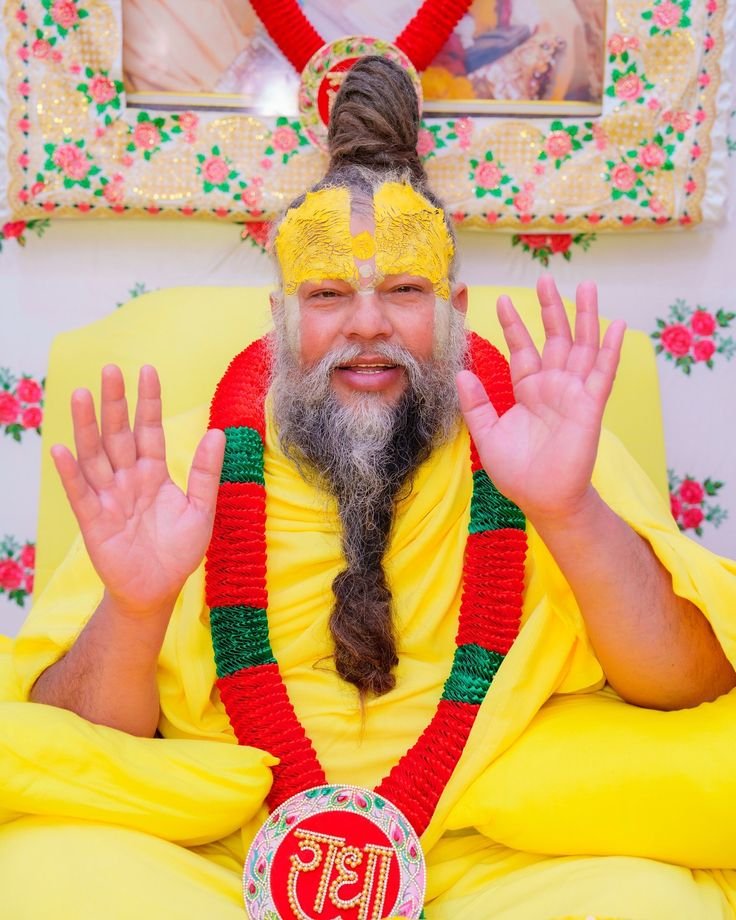India’s cultural heritage is adorned with festivals that not only bring joy but also strengthen relationships. One such beautiful festival is Raksha Bandhan – a celebration of the sacred bond between brothers and sisters. This festival is not just about tying a thread; it is about the emotions, promises, and traditions that make this relationship timeless.
Meaning of Raksha Bandhan
The term “Raksha” means protection, and “Bandhan” means bond or tie. On this day, a sister ties a rakhi (decorative thread) on her brother’s wrist, symbolizing her love and prayers for his well-being. In return, the brother pledges to protect her for life. This tradition has been carried forward for centuries and continues to hold great emotional value.
Historical and Mythological Significance
Raksha Bandhan has roots in several legends from Indian history and mythology:
-
Draupadi and Lord Krishna
During the Mahabharata, once Lord Krishna injured his finger while using his Sudarshan Chakra. Draupadi tore a piece of her saree and tied it to his finger to stop the bleeding. Touched by her care, Krishna promised to protect her at all costs – a promise he later fulfilled during the disrobing incident in the Kaurava court. -
King Bali and Goddess Lakshmi
According to the Bhagavata Purana, Lord Vishnu stayed at King Bali’s palace to protect him. Goddess Lakshmi, longing for her husband, tied a rakhi to Bali and requested him to let Vishnu return to Vaikuntha. Bali agreed, showing how the festival also symbolizes bonds beyond blood relations. -
Rani Karnavati and Emperor Humayun
In medieval India, Rani Karnavati of Chittorgarh sent a rakhi to Mughal Emperor Humayun seeking protection from an invasion. Honoring her gesture, Humayun set out with his army to defend her kingdom.
Raksha Bandhan: A Celebration of Love, Trust, and the Eternal Bond Between Siblings
Traditional Celebrations
Raksha Bandhan is usually celebrated on the full moon day (Purnima) of the Hindu month of Shravan. The day begins with special rituals:
- Sister’s Ritual—The sister prepares a thali (plate) with a rakhi, rice grains, vermillion (kumkum), diya (lamp), and sweets. She applies a tilak to her brother’s forehead, ties the rakhi on his wrist, and
performs an aarti (prayer). - Brother’s Promise – The brother gives his sister gifts, money, or jewelry as a token of love and takes an oath to protect her in all circumstances.
- Family Gathering—Families come together to celebrate, share meals, and exchange gifts, making the day memorable.
Raksha Bandhan in Modern Times
Though traditionally observed between brothers and sisters, today Raksha Bandhan has evolved to symbolize universal love and protection. It is now common for sisters to tie rakhi to friends, cousins, mentors, and even
soldiers to honor their role in ensuring safety and harmony.
The festival is also celebrated among communities to strengthen social bonds, regardless of religion or gender. In some places, women tie rakhis to trees to symbolize their commitment to protecting nature.
Raksha Bandhan and the Armed Forces
Every year, thousands of rakhis are sent to Indian soldiers by women across the country. This gesture is a heartfelt tribute to the bravery and sacrifices of those who guard the nation’s borders. For soldiers who are often away from
home, these rakhis become a reminder of the nation’s love and gratitude.
Changing Trends in Celebrations
- Online Rakhis and Gifts – With globalization and migration, siblings living in different cities or countries now use e-commerce platforms to send rakhis and gifts.
- Virtual Celebrations – Video calls and online events allow families to celebrate despite physical distance.
- Eco-Friendly Rakhis—Environmentally conscious citizens are now choosing rakhis made from biodegradable materials, seeds, and cloth to reduce environmental impact.
Life Lessons from Raksha Bandhan
Raksha Bandhan is more than just a tradition; it teaches valuable life lessons: Relationships are built on trust and care—the festival reinforces the importance of being there for each other. Protection is a shared responsibility—it’s not
only brothers who protect sisters; in modern times, both stand by each other in challenges. Celebrating unity in diversity—Raksha Bandhan transcends caste, creed, and religion, promoting peace and unity.
Interesting Facts About Raksha Bandhan
- The festival is also known as Saluno or Shravani in different parts of India.
- In Nepal, Raksha Bandhan is celebrated with equal enthusiasm and is part of their cultural heritage.
- Coastal communities also celebrate it as Nariyal Purnima by offering coconuts to the sea for safety in fishing and sailing.





